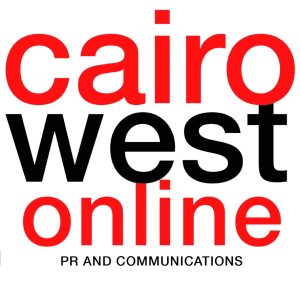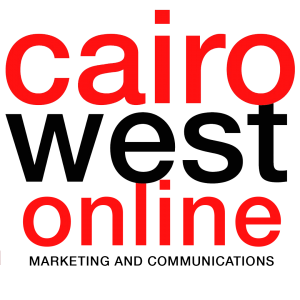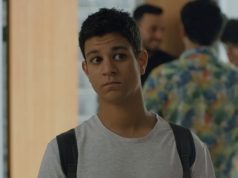
Sir Magdi Yacoub
The Man, and The Philanthropist
By Francesca Sullivan
The twenty-second of October was an important day at the Magdi Yacoub Foundation Heart Centre in Aswan. A host of prestigious figures; generous donors, government ministers and businessmen, gathered to mark the opening of a new wing at the ground breaking hospital that is the flagship of the celebrated heart surgeon’s continuing mission to not only improve the nation’s health, but to provide hope to those in need even beyond the country’s borders. Professor Sir Magdi Yacoub’s international contribution to cardiology and the development of Egypt’s health system is unmatched, and as a life-saving surgeon and pioneer in his field he needs no introduction; he is already a national hero.
As Ghada Waly, Minister for Social Affairs, aptly noted in her speech, the celebration in Aswan appropriately fell on the same day as Upper Egypt’s October sun alignment festival, the day on which light floods the temple of Ramsis the Second at Abu Simbel. The symbolism of this ray of light shone brightly over the event. Entering the Aswan Heart Centre the sense of hope, positive energy and even happiness despite the grave condition patients here may be in, is tangible. It resonates from the hospital staff and seems to reside in every corridor, ward and laboratory. The feeling is clear; this is a place of miracles, but it also sets a high standard of quality, on-going health care that is actively looking to the future.
Cairo West Magazine had the opportunity for an exclusive interview with Professor Yacoub, and put to him some questions about the Centre, its future, and keeping Egypt’s population healthy.
CWM: You’ve made a big difference to the lives of many. How do you encourage others to follow your example?
MY: I’m not alone; I’m just one of a team that work in many different areas. I am not conscious of acting as an example – I just try to do, and others can see whether this is something they would like to emulate. The great thing is the young people; they believe in the same concept and want to make it work. If you do something and people love it they will want to do it too.
Nothing happens by chance. The hospital is only four years old and I never thought in my wildest dreams that it would all come together so fast. But I see that it’s because all of us believe in the same cause. Egyptian people are suffering in silence; we see it in the eyes of children and their parents, and I feel very emotional about this.
We are very conscious here of sustainability; how all of this will continue after I am gone. It is all about training and encouraging young doctors and scientists to follow in my footsteps and be enthused with the same goals.
What has been the impact on the local community here in Aswan, having such good health care?
Well, this is as much an observation as anything. We prioritize first and foremost the people from Aswan, then from Upper Egypt, the rest of the country, and other African countries. This goes to the heart of our mission, which is to serve those in most need. We offer acute services, such as opening a blocked artery to prevent a heart attack, as well as comprehensive cardiac care for both children and adults who are born with defects.
Apart from all that, we are a source of employment for the local community, and psychologically they are proud to have a Centre of such a high standard here on their doorstep. We always say they own it – which they do.
What is the guiding ethos of the Centre?
The word dignity is very high on our agenda and we are proud to treat people as human beings with the utmost dignity regardless of who they are, and give priority to poor, desperate people.
We have been collaborating from day one with our sister charity Chain of Hope, which is part of our mission. There are patients recognized by the Chain of Hope medical board from African countries such as Mozambique, Ethiopia and Uganda who are desperate for our specific expertise. Chain of Hope flies them here and we treat them. We also offer training services to staff and doctors from African countries and also places in real need such as Haiti, with a view to opening other centres elsewhere.
How do you select the team who staff the hospital?
We advertise, or people come to us, and we have an interview board. We know what we are looking for, and we tell them this is an egalitarian society; you need us as much as we need you, but we have specific criteria just as you do. For our part we look for applicants who are young (the younger the better), enthusiastic and hungry for knowledge rather than thinking they know it all, and with a caring attitude towards society. Most of the time we are successful in finding the right people, and if we feel we’ve made a mistake we will tell them, in the most civilized way, to find another institution.
Are you optimistic about the future of healthcare in Egypt?
I am, even though it’s a daunting task. We recently had a conference here at the Centre entitled Global Health Care, sponsored by us in collaboration with several universities, and we invited the head of the British NHS, who reminded us that when the NHS started in the UK, the country was on its knees. It was the post war period, there was rationing, the economy was devastated. But the concept was correct and a national health service could and did act as a unifying force in the country. You can start small and grow into it. I feel confident that if we start a scheme for global health insurance then there are people who would help and contribute. It’s important to guarantee quality in whatever we do, beginning with primary health care. It’s evident from running a centre like this that tertiary health care depends very heavily on primary health care, since you cannot treat people unless they are diagnosed correctly.
Also we recently started a study in one of the local villages whereby we will examine twenty-eight thousand people and determine their cardio-vascular status, looking at risk factors, bio-markers, genetics and utilizing the latest technology. The African region is lagging behind the rest of the world in the development of ‘personalized precision medicine’ – the future of medicine – but studies like this help provide important data not only to help our own population, but also to provide data to the rest of the world and help contribute to scientific knowledge. When you give a drug to a patient there is only a twenty to fifty percent chance it will work, but with better knowledge about genetic composition, the structure and function of the individual, we can do better. That is why we have, upstairs in our new wing, young scientists working with the latest in technical apparatus; genomics, sequencing, imaging, computer processing and 3D modelling of the heart. All of this helps us plan and audit before and after operations. So there are lots of exciting things happening!








